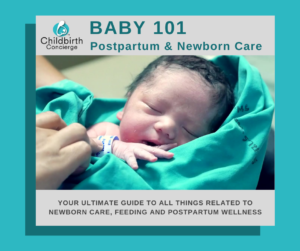Welcoming a newborn baby into your home is exciting however sleep deprivation with a new born is real! It often comes with the challenge of sleepless nights and exhaustion. For new parents, sleep can feel like a distant memory, but it’s crucial for maintaining health and well-being. This guide aims to provide practical tips and strategies to help postpartum families get the rest they need while caring for their newborn and how to reducing sleep deprivation.
Understanding Newborn Sleep Patterns
Typical Sleep Patterns of Newborns
Newborns have unique sleep patterns that differ significantly from adults. They typically sleep in short bursts of 2-4 hours throughout the day and night, totaling about 14-17 hours of sleep in a 24-hour period. Understanding these patterns can help parents set realistic expectations and plan accordingly.
How Sleep Changes Over Time
As babies grow, their sleep patterns gradually change. Around three months, many infants begin to consolidate sleep into longer stretches at night, though they still wake frequently for feedings. By six months, some babies may start sleeping for longer periods, though individual sleep needs and patterns can vary widely.
Creating a Sleep-Friendly Environment
Safe Sleep Practices for Babies
Ensuring your baby sleeps safely is paramount. Follow these guidelines:
- Always place your baby on their back to sleep.
- Use a firm mattress with a fitted sheet.
- Keep the crib or basinet free of loose bedding, pillows, and toys.
- Share your room with your baby, but not your bed, for at least the first six months.
Setting Up a Calming Sleep Space
Create a soothing sleep environment by keeping the room dark, quiet, and cool. Blackout curtains can help block out light, and a white noise machine can provide consistent background sound that may help your baby sleep more soundly. This helpsto reduce sleep deprivation with a newborn baby.
Establishing a Routine
Importance of Consistent Schedules
Newborns thrive on consistency. Establishing regular sleep and feeding schedules can help regulate their internal clocks and make sleep more predictable. Try to stick to the same routine every day, even on weekends. Keep in mind that it is best practice with breastfeeding infants to feed on demand.
Bedtime Routines for Babies and Parents
A calming bedtime routine can signal to your baby that it’s time to sleep. This might include a warm bath, gentle rocking, and a lullaby. For parents, engaging in relaxing activities like reading or light stretching can help prepare for sleep.
Maximizing Sleep for Parents
Napping When Baby Naps
Taking advantage of your baby’s nap times to rest yourself is essential. Even short naps can help alleviate sleep deprivation and improve your energy levels and mood.
Sharing Nighttime Duties
Splitting nighttime duties with your partner can ensure both of you get some rest. Consider alternating shifts to balance the load and reduce fatigue and sleep deprivation with a newborn baby.
Utilizing Sleep Aids and Tools
Consider using sleep aids like white noise machines, swaddles, and pacifiers to help soothe your baby and create a restful environment. These tools can make a significant difference in your baby’s sleep quality. Here is a great quick video on How to pick a pacifier for the breastfed baby.
The Role of Professional Postpartum Support
Benefits of Postpartum Doulas
A postpartum doula is a trained professional who provides physical, emotional, and informational support to new families. They can assist with breastfeeding, newborn care, and household tasks, helping parents get much-needed rest and reducing stress.
How They Can Help
Some specialize in overnight care for infants, allowing parents to sleep through the night. They handle feedings, diaper changes, and soothing the baby back to sleep, providing invaluable support during the early months.
Practical Tips for Better Sleep
Managing Nighttime Feedings
If you’re breastfeeding, consider pumping 1 session once baby is about three to four weeks old so your partner can handle a feeding. If you’re formula-feeding, pre-mix bottles and keep them ready to minimize disruption during the night.
Reducing Nighttime Disruptions
Minimize disruptions by having essential items within reach—diapers, wipes, and feeding supplies. Keep nighttime feedings and diaper changes as quiet and calm as possible to help your baby (and you) return to sleep more easily.
Creating a Relaxing Bedtime Routine for Parents
Incorporate relaxing activities into your own bedtime routine. This might include reading, taking a warm bath, or practicing mindfulness or meditation. A calm mind can lead to better sleep quality.
Balancing Self-Care and Baby Care
Prioritizing Self-Care
Taking care of yourself is crucial for your ability to care for your baby. Prioritize activities that rejuvenate you, whether it’s a short walk, a hobby, or simply a few minutes of quiet time.
Incorporating Simple Self-Care Activities
Find simple self-care activities you can incorporate into your daily routine. This might include deep breathing exercises, stretching, or enjoying a cup of tea while your baby naps.
Long-Term Benefits of Self-Care
Consistently practicing self-care helps maintain your physical and mental health, making you more resilient and better equipped to handle the challenges of parenthood.
Partner Support and Communication
Involving Your Partner in Nighttime Routines
Involve your partner in nighttime routines to share the load. This teamwork approach ensures both parents get rest and strengthens your bond as you navigate parenthood together.
Communicating Needs and Expectations
Open communication with your partner about your needs and expectations is vital. Discuss how you can support each other and find solutions that work for both of you.
Importance of Teamwork
Effective teamwork can make a significant difference in managing sleep and stress. Approach parenting as a team effort, where both partners contribute to caring for the baby and supporting each other.
Extended Family and Community Support
How Friends and Family Can Help
Don’t hesitate to ask for help from friends and family. They can assist with household chores, cooking, or even taking care of the baby for a few hours so you can rest.
7 Sisters Approach
Identify 7 friends or family member who each take a day of the week and commite to reach out to you on their assigned day to call, bring or send a meal, run to the grocery store of come sit with you. This helps to spread out the support and is a new face and interaction each day of the week.
Utilizing Community Resources and Support Groups
Community resources and support groups can provide valuable assistance and a sense of camaraderie. Many organizations offer services for new parents, including childcare, counseling, and educational programs.
Importance of Asking for Help
Asking for help is a sign of strength, not weakness. Recognize that it’s okay to lean on others, and doing so can significantly improve your well-being and your ability to care for your baby. Always ask for help if your feel your sleep deprivation is affecting you.
Mental Health and Sleep
Recognizing Postpartum Depression and Anxiety
It’s important to be aware of the signs of postpartum depression and anxiety, which can include persistent sadness, overwhelming fatigue, and difficulty bonding with your baby. If you experience these symptoms, seek professional help.
How Sleep Deprivation Affects Mental Health
Chronic sleep deprivation can exacerbate mental health issues, leading to increased stress, irritability, and difficulty coping. Prioritizing sleep can help improve your mental health and overall well-being.
When to Seek Professional Help
If you or your partner are struggling with sleep deprivation with a newborn or mental health issues, don’t hesitate to seek professional help. Therapists, counselors, and healthcare providers can offer support and treatment options.
Spanning a 34-year career in the maternal health field, Kathy is an industry pioneer and the visionary behind Childbirth Concierge. She honors all journeys to parenthood and feeding, and is committed to ensuring that parents feel seen, heard and valued while in her care. As a mother of five herself, Kathy has considerable experience in preparing for the birth and care of newborns, and helps to empower parents by delivering peace of mind during what can at times be a challenging situation. A born educator, she is in her element teaching new parents and health professionals. She worked 14 years in Maternal Health at Winnie Palmer Hospital in Orlando and is a self-proclaimed “Birth JUNKIE”.






